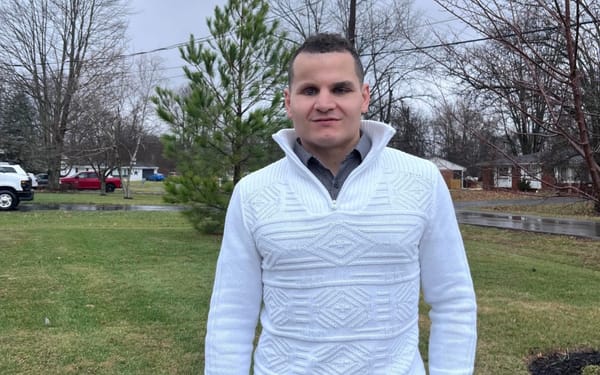Seven Steps To Having God’s Blessing On Your Finances

Virtually every Christian I know would say they want God to bless them in their personal finances. Through several helpful conversations this last week with different individuals in our church, I decided to write up seven simple, yet often avoided, steps every Christian should take if they want to position themselves to receive God’s blessing in this particular area of their lives. While keeping these principles certainly does not guarantee a Mercedes will be in our driveways next month, it does offer us something better – namely, the blessing of God.
1) Look at wealth as a stewardship opportunity.
All that we have is God’s. He entrusts us to manage a portion of all that he already owns. Not understanding this leads us to be possessive. We use phrases like, “Well, this is MY money.” But understanding this principle is liberating.
2) Work if you are able. — “If anyone is not willing to work, let him not eat.” — 2 Thessalonians 3:10
Some Christians were raised with a strong work ethic. Others struggle in this area. They tend to let life happen to them. Instead of just getting off their couch and going to work, they use prayer as a mask to cloak their lack of personal initiation. “God, you see how I am struggling financially. Please provide me the money I need.” But having God’s blessing not only involves God doing his part. It necessitates us doing our part as well.
3) Be honest in paying taxes. Jesus said to them, “Render to Caesar the things that are Caesar’s, and to God the things that are God’s.” — Mark 12:17
Over the years I have consistently been amazed at how big of an issue this continues to be with many Christians. Recently, I had a gentleman install a gas line for us at our house. When I asked him how much it costs, his response was typical, “$350 cash…or you can pay $395.50 because of the 13% HST federal and provincial tax.” (Yes, that’s a 13% tax for you American readers 🙂) Now, in the short run, I will admit that on the surface $350 looks a little better to me than $395.50. But, there really is not a price tag we can place on having God’s blessing on our life. I’d far rather pay an extra $40 and have God’s blessing and provision than I would to only pay $350 and go it alone.
4) Tithe 10% of all you have back to God.
8 Will man rob God? Yet you are robbing me. But you say, ‘How have we robbed you?’ In your tithes and contributions. 9 You are cursed with a curse, for you are robbing me, the whole nation of you. 10 Bring the full tithe into the storehouse, that there may be food in my house. And thereby put me to the test, says the Lord of hosts, if I will not open the windows of heaven for you and pour down for you a blessing until there is no more need. 11 I will rebuke the devourer for you, so that it will not destroy the fruits of your soil, and your vine in the field shall not fail to bear, says the Lord of hosts. 12 Then all nations will call you blessed, for you will be a land of delight, says the Lord of hosts. — Malachi 3:8-12
One of the best financial decisions Janan and I ever made as a couple was our commitment to tithe 10%. This was ingrained in both of us from an early age. Make $10? Give $1 back to God. Admittedly, there have been times when keeping the extra 10% has looked awfully appealing. But again, I am convinced that we cannot put a price tag on having God’s blessing.
Some say, “But isn’t this Old Covenant stuff that doesn’t apply to us today?” Valid point…or maybe not. Long story short, I recently heard David Jeremiah note that the typical OT Jew would give up to 23% in tithes and offerings to God (Not sure this would go over well with many believers today!). Many in the early NT church gave almost all they had to kingdom causes. In short, if we look at 10% as a mandatory tax that we are Christians are obligated to pay, we have missed the whole point. God does not need our money. Rather, the universal principle of tithing is that God can do more in our lives with 90% than we can do with 100%. Bottom line: I have not known one solid Christian who has tithed consistently and has regretted doing so.
5) Decide how much of your income you will live on.
Several years ago I heard Andy Stanley make this statement and it helped me a lot. By already determining the essentials in life such as tithe, savings, and monthly expenses, we are able to get a more accurate financial picture of what we actually have. Living below our means, without excessive credit card debt, is a way of trusting God. It is saying “God, what you have given me is enough. I don’t need to take matters into my own hands.”
6) Keep accountable and joint bank accounts.
As with almost everything, accountability is critical. For singles, it’s a good idea to routinely connect with a trusted believer who is good with money. Ask them advice. For married people, we should have outside advisors as well. When Janan and I are faced with tough decisions we like to call her parents or a couple in Virginia we know named Bob and Nancy Stouffer and run our ideas off of them.
That being said, the chief person we should be accountable to is our spouse. One of the questions from our bank representative that always takes me off guard is when she asks something like, “Now will both of you be on this account or will this be an individual private transaction?” In other words, am I going to have a lump sum of money that Janan knows nothing about?
As ridiculous as this sounds to me, I am sometimes shocked at the number of Christian couples who claim to be “one under God” and yet each has separate bank accounts with the other having no clue what they have or do not have. They each make their own income and live off of what they make. One might be in debt while the other is prospering. To put it as plainly as possible, there is absolutely zero basis for this belief system in Scripture. When we get married, we become one flesh. It is not my stuff and her stuff. It is our stuff.
7) Cultivate a generous spirit.
Personally, I have always been attracted to generous people. Aside from the blessings they offer, there is just something about them that is contagious. Over the years I have been blessed to know some incredibly generous people. Individuals like Jeff Keaton who looked at the tires on my car one day and sent me to the shop so he could put on new ones. People like Lowell and Karen Martin, who when we met up with them recently insisted on covering our breakfast tab. Incredible supporters like Dorothy Good who finds ways to do very considerate things when we least expect them.
My inlaws are also at the top of this list. Last year, after they lost one of their homes to fire, their local church graciously took up an offering for them to help them replace some of their lost items. As it so happened, our church in Toronto was going through a building renovation. Rather than keeping the money for themselves, they asked that the money they received for this offering be given to support us in Toronto. Pretty amazing!
Being around generous people has a way of rubbing off on you. It helps you release the grip on your money a little more and treat wealth as a stewardship opportunity from God.





